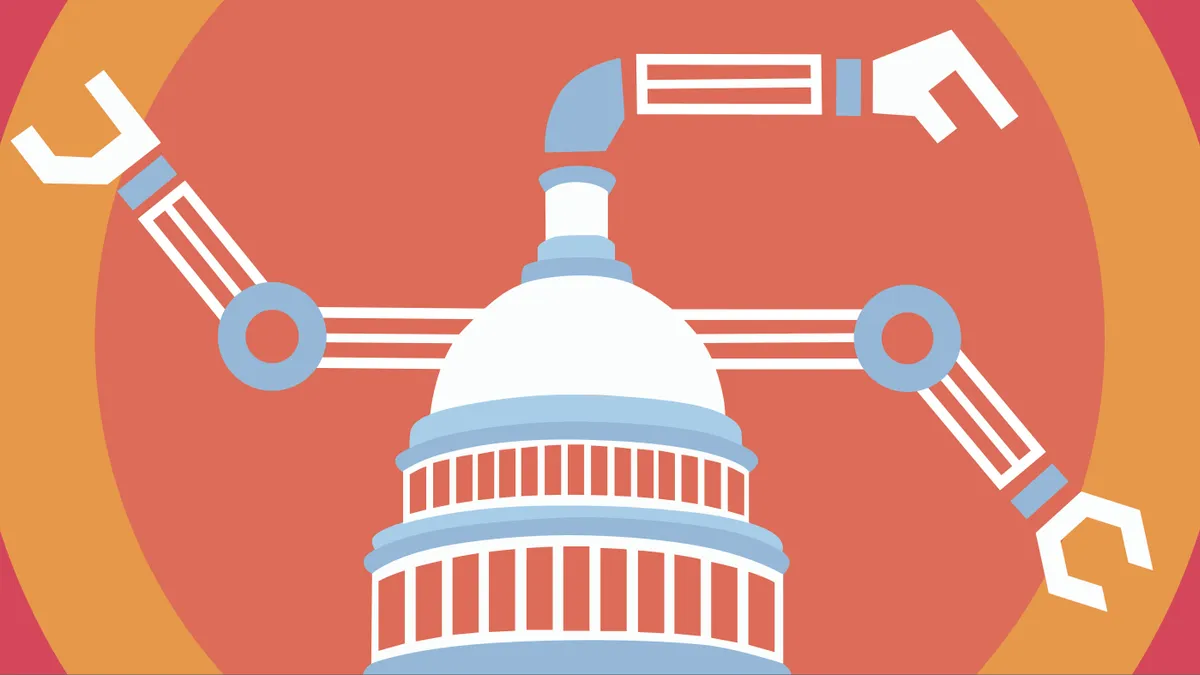Editor's Note: The following is a weekly column covering technology and regulation within the supply chain and logistics industries.
Trade war: how concerned should we be?
About a month after the steel and aluminum tariffs were enacted, U.S. aluminum prices are falling, The Wall Street Journal reported yesterday.
That's great news for aluminum users — like automakers — checking some of the doomsday predictions that tariffs would increase prices and eventually trickle down to the consumer. It also supports some economists' theories that the tariffs would have minimal impact on the U.S. economy in the long run.
Now there's a bigger problem: an impending trade war between the U.S. and China, as both have slapped tariffs on hundreds of Chinese and U.S. goods. The U.S. cites protecting U.S. intellectual property rights (a valid concern, as many Chinese imports to the U.S. are in fact counterfeit) and restoring the deserted and broken down Midwestern industrial towns, so China clapped back by targeting goods produced by states President Trump relies on for electoral support.
The Reaction: Even if all of those tariffs are imposed, a Bloomberg analysis found that they would have a minimal net impact on the U.S. economy, reporting that U.S. annual growth would only drop 0.1% to 0.2% per year.
Furthermore, Barclays economists told CNBC that the stock market is "overreacting" to the "trade war," likely because the inflammatory rhetoric on both sides is just pre-negotiation sparring. Both countries' tariffs are still just proposals, so there's still plenty of time for them to sit down and hash it out.
But the uncertainty caused by the tit-for-tat is roiling the stock market and antagonizing investors, so the real harm could come from manufacturers and companies preemptively pulling out of China or rearranging their supply chains just in case something really bad happens, as Paul Krugman writes in The New York Times. And that could create real economic problems.
Tesla is going bankrupt — April Fool's?
Tesla CEO Elon Musk tweeted on Sunday that Tesla was going bankrupt, and the internet threw a fit. Musk played on investors' current worst fear regarding the startup automaker, that after months of missing deadlines (and still not turning a profit) he was finally throwing up his hands and calling it quits.
Ironically, Tesla's actually on a bit of an upward swing, at least according to the numbers. Although Tesla still isn't producing its target rate of 2,500 Model 3s a week, the company has finally hit 2,000 a week, and that's a victory (reassuring those Tesla supporters who know that Musk always delivers, even if he's dreadfully late).
The Reaction: Despite continued talk that Tesla's "make or break" moment is "fast approaching," the company's Q1 2018 data was largely positive, with the company reassuring investors that it won't need to raise any more capital.
Even though Model 3 sales rose in Q1 2018, Model S and Model X sales dropped, which could rob the company of much needed revenue as it continues to scale. Tesla always has and continues to offer investors a mixed bag, and it still hasn't figured out its supply chain issues.
In case you missed it
Trump doesn't like Amazon — he thinks the e-commerce giant has an unfair advantage over smaller companies. He might not be wrong. But he might not be right.
After Atlanta's massive cyberattack, CB Insights put together a list of cybersecurity startups in each state.
Looking ahead
All eyes are on the White House to see what happens next with China (and it could be anything). Bloomberg reported NAFTA negotiators seem "optimistic" about a deal.
Meanwhile, Coinbase wants to start an incubator to support crypto and fintech startups, which could further the adoption of blockchain in some industries, and despite its troubles with Amazon and Whole Foods, Instacart just landed a new round of funding.













